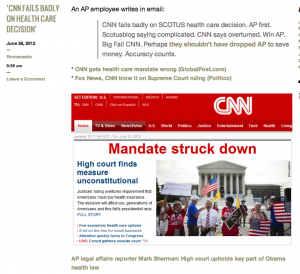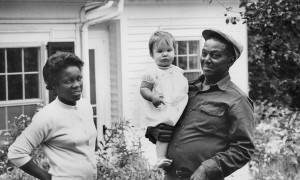Posting Photos on tumblr
Playing with my new tumblr, great for photos from my recent Toronto trip like the one just posted over there.
Playing with my new tumblr, great for photos from my recent Toronto trip like the one just posted over there.
I’ve started a tumblr blog to share visual material and quick-hitting posts, different from what I post on this blog, though there will be some cross-posting too. Please follow me there, if you like. You can find it at this link, or http://philipst.tumblr.com/. Among my first new posts there was this one.
 #FridayReads, June 29–Brain on Fire: My Month of Madness, Susannah Cahalan’s frightening first-person account of the autoimmune disease that rendered her catatonic for a month, drove her nearly mad, and almost killed her. Riveting and disturbing, this was one of the books featured on the BEA Buzz panel at Book Expo America earlier this month. I’ve scanned the cover for this post, but I have a feeling that Free Press is still working on the jacket, because there seems no evidence of a final cover online. During the Buzz Panel I tweeted the message below.
#FridayReads, June 29–Brain on Fire: My Month of Madness, Susannah Cahalan’s frightening first-person account of the autoimmune disease that rendered her catatonic for a month, drove her nearly mad, and almost killed her. Riveting and disturbing, this was one of the books featured on the BEA Buzz panel at Book Expo America earlier this month. I’ve scanned the cover for this post, but I have a feeling that Free Press is still working on the jacket, because there seems no evidence of a final cover online. During the Buzz Panel I tweeted the message below.

Next up, Panorama City, a novel by Antoine Wilson, also one of the BEA Buzz books.
 Neal Maillet, editorial director of Berrett-Koehler Publishers, has published a good opinion piece in Publishing Perspectives on what he sees as the imperative of publishing books by whistleblowers, and the dynamics that prevail when working with these authors and their books. In 2004 Berrett-Koehler published the breakthrough book on vulture capitalism, Confessions of an Economic Hitman, a mega-hit by John Perkins that was licensed to Plume for trade paperback for whom it was also a bestseller. More recently, he writes that B-K has published Confessions of a Microfinance Heretic, on the little-known darker side of what we like to think of as progressive measures to facilitate economic progress in the developing world.
Neal Maillet, editorial director of Berrett-Koehler Publishers, has published a good opinion piece in Publishing Perspectives on what he sees as the imperative of publishing books by whistleblowers, and the dynamics that prevail when working with these authors and their books. In 2004 Berrett-Koehler published the breakthrough book on vulture capitalism, Confessions of an Economic Hitman, a mega-hit by John Perkins that was licensed to Plume for trade paperback for whom it was also a bestseller. More recently, he writes that B-K has published Confessions of a Microfinance Heretic, on the little-known darker side of what we like to think of as progressive measures to facilitate economic progress in the developing world.
For my part, when I describe the imperatives and mandates that impel my personal publishing choices I have long placed “whistleblowers, truthtellers, muckrakers, and revisionist historians” highest on my list, and refer to this on the two business-oriented pages at the top of this website, Philip Turner Book Productions and Philip Turner. Quoting from the latter page, I’ve written “As an editor and publisher I have always felt impelled to publish books by and about singular witnesses–whistleblowers, truthellers, muckrakers, revisionist historians–people who’ve passed through some crucible of experience that’s left them with elevated author-ity, and the only person who could write the book in question, or about whom it could be written. Whether told in the first person by an author who has passed through some crucible of experience that leaves him or her uniquely qualified to tell the tale or in the third person by a reporter or scholar who has pursued a story or historical episode with single-minded passion, I am devoted to publishing imperative nonfiction, books that really matter in people’s lives.”
My definition of an imperative book is not limited to books by corporate and government whistleblowers, though it certainly includes them. The list of relevant books I’ve acquired and/or published over the past decade and a half includes these ten titles:
1) DEAD RUN: The Shocking Story of Dennis Stockton and Life on Death Row in America (1999), a nonfiction narrative by reporters Joe Jackson and Bill Burke with an Introduction by William Styron, chronicling an innocent man on Death Row in Virginia and the only mass escape from Death Row in U.S. history. The condemned convict, Dennis Stockton, wasn’t among the escapees, but he kept a whistleblowing diary detailing corruption in the penitentiary that he later with the reporters;
2) IBM & THE HOLOCAUST: The Strategic Alliance Between Nazi Germany and America’s Most Powerful Corporation (2001), an investigative tour de force by Edwin Black showing how one of the world’s most successful technology companies lent its technology to the Third Reich’s killing machinery;
3) THE WOMAN WHO WOULDN’T TALK: Why I Refused to Testify Against the Clintons and What I Learned in Jail (2002) by Susan MacDougal, a New York Times bestseller. Susan served 18 months in jail for civil contempt when she wouldn’t give Special Prosecutor Kenneth Starr the testimony he wanted from her.
4) THE POLITICS OF TRUTH: Inside the Lies that Put the White House on Trial and Betrayed My Wife’s CIA Identity (2004) by Ambassador Joseph Wilson, which later became the basis in part for the film, “Fair Game,” a New York Times and Publishers Weekly bestseller;
5) AHMAD’S WAR, AHMAD’S PEACE: Surviving Under Saddam, Dying in the New Iraq (2005) by Michael Goldfarb. A longtime NPR correspondent, this is Goldfarb’s tribute to Kurd Ahmad Shawkat, his translator during the U.S. invasion of Iraq, who started a newspaper in the months after Saddam’s fall, only to be assassinated for his editorials critical of intolerance. A New York Times Notable Book.
To the books by these authors, I would also add my writers, the late Edward Robb Ellis, the most prolific diarist in the history of American letters, and 100-year oldRuth Gruber, award-winning photojournalist–each of them singular eyewitnesses to history. Over the years I have published four and six books by them, respectively.
Among my professional roles nowadays is that of independent editor and consultant to authors on book development in which I continue seeking out unique individuals with stories like these to tell. That’s also why I enjoy working with Speakerfile, the company that connects conference organizers with authors who do public speaking. Thanks to Neal Maillett and Berrett-Koehler Publishers for reminding me and all readers of the vital role publishers play in helping us hear the voices of whistleblowers and truthtellers. H/t to Mike Shatzkin for alerting me to Mr. Maillett’s article. Also, thanks to the Open Democracy Action Center (ODAC) for use of their whistleblower graphic.
Please click through to the complete post to read about the last five books from the above list and see many of the book jackets.
Mid-Afternoon Update: According to TPM’s Benjy Sarlin, it turns out that like me and millions of other Americans, the flawed reporting of CNN and FOX just after 10:00 AM this morning gave President Obama the false impression that the ACA had been struck down by the Supreme Court. It was incorrect, of course, but it shows how careless those two news orgs were in playing with the emotions of so many news consumers and citizens. I was following the unfolding drama on Twitter and on TV we had MSNBC. I saw a CNN tweet from reporting the mandate had been ruled unconstitutional, and my heart sank at first, but then–as has occasionally occurred in sports, when a final call or a buzzer beater is later over-ruled–I thought, Wait a minute, let’s see what the other networks are saying. Sure enough, within a few minutes Pete Williams, an NBC correspondent was telling the MSNBC anchor Chris Jannings that the mandate had in fact been upheld. So it goes, but when you have news orgs behaving as irresponsibly as two did today, the public is very poorly served.
—
Early Afternoon Update: BuzzFeed.com‘s Michael Hastings has spoken with “about a half-dozen top on-air reporters and producers within” CNN who “are “furious” and embarrassed at their network’s blown coverage on “the most consequential story of the year.” ‘Fucking humiliating, said one CNN veteran. ‘We had a chance to cover it right. And some people in here don’t get what a big deal getting it wrong is. Morons.’ ‘Shameful,’ another long-time correspondent told BuzzFeed. ‘It’s outrageous and embarrassing,’ a third CNN staffer vented. ‘Maybe this will shake the company into understanding that CNN has not been the ‘most trusted name in news’ for a very long time.'”
—
Shortly after 10:00 AM this morning, CNN and FOX jumped the gun and inaccurately reported on the upshot of the Supreme Court ACA’s ruling. I suspect this was probably done in CNN’s case out of an overzealous mania to report the news first–without insuring the report’s accuracy–and from ideological zeal in FOX’s case. Both news organizations have much to apologize for. Judging by one screenshot below, CNN has already issued a correction, no sign yet if or when FOX will do the same. Each network should also explain how the errors occurred. H/t Keith Boykin and David Folkenflik.  Added: CNN not only tweeted its error, but even blared the error on its website.
Added: CNN not only tweeted its error, but even blared the error on its website.
We can hardly believe that on the eve of the Supreme Court ruling on the Affordable Care Act, Kyle’s had to draft a letter to the New York State Superintendent of Financial Services about the 2013 rate increase requested by United Healthcare, our health insurer, which I’m now adding to.
I don’t know what the Court ruling will be when it’s announced tomorrow morning at 10:00 AM, but I do know the system sucks when a CEO can make money like that. There is an insidious dynamic at work here: Hemlsey’s compensation and the rate increase request are diabolically inter-related–he makes more money when the company is more profitable, and the company is more profitable the more they charge their policyholders.
We’ll finish the letter tomorrow and mail it off to Albany, by which time we’ll know how the Court has ruled. It’s going to an interesting, historic, stressful day.
In early September 2010, I saw an announcement that Ambassador Joseph Wilson–whose book The Politics of Truth: Inside the Lies that Led to War and Betrayed My Wife’s CIA Identity, I had edited and published with him in 2004–would be appearing in a September 16 forum at the New York Times Center to mark the 40th anniversary of the NYT‘s Op-Ed page, which would be observed with a special section of the paper on Sunday, September 25. The moderator of this event, Op-Ed page editor at the time David Shipley, had invited Joe because his July 6 2003 op-ed What I Didn’t Find in Africa had been one of the most historically significant columns the newspaper published that decade, leading to the outing of Joe’s wife Valerie Plame as a CIA official and years of Bush administration denials that they had doctored the intelligence that fueled their claims about Iraqi WMDs.
I got a hold of Joe and he invited me to be his guest that evening. We hadn’t seen each other in a couple years, and so met an hour beforehand to catch each other up on our lives, after which we entered the green room just off the stage at the Times Center. There Joe generously introduced me as his editor and publisher to the other panelists–Roy Blount Jr., Garrison Keillor, Anna Deavere Smith, and Nora Ephron. They all seemed genuinely interested in one another, and conversed briefly among themselves before going out on stage. Blount was funny, in a low-key way, Keillor was diffident and the only one who wasn’t talkative, Smith told stories about her one-woman shows, and Ephron was funny and self-deprecating. I went out and talk a seat in the auditorium. Once on stage, Shipley asked each of them to speak about how they came to write their Op-Ed. Ephron spoke about her stint as a White House intern in the 1960s, which she turned into a 2003 Op-Ed. The fascinating program went by in a flash.
Afterward there was a reception, and books signed by each panelist for interested members of the public to purchase. The paperback of The Politics of Truth was on hand and I was proud to see Joe inscribe quite a few copies for eager readers who lined up to meet him. During a lull in the signings, I approached Nora Ephron and thanked for her remarks during the program, when she’d praised the Times columnist Russell Baker, who retired from the paper several years earlier, and who seems to me too little remembered by readers nowadays. This was in response to Shipley, who’d asked her if she particularly recalled any contributors to the Op-Ed pages. She brought up Baker and in praising him conceded that he didn’t qualify since he was a Times staffer, and not a guest contributor, which those who write Op-Eds are by definition. Still, she said, Baker was too special to go unremarked. I had also long admired Baker’s style and told her I was glad she’d mentioned him, whether he qualified or not. A few days later, eager to make a connection with this witty woman, I sent her a letter, a screen shot of which is produced below. I didn’t get a reply, but I hadn’t asked for one, and remain very glad to have simply met her.
With the news yesterday of Nora Ephron’s passing, I recalled meeting her and writing the letter. I’m sure I wasn’t the only person to have enjoyed meeting her in person, so I’m glad I can share my recollections in this space. Just before putting up this post, I discovered a ten-minute video from that evening, almost entirely featuring Nora Ephron. Click on this link and look for “Op-Ed at 40: Voices of the Times” to view it: Times Talks with Nora Ephron, Ambassador Joseph Wilson, Anna Deavere Smith, Roy Blount Jr., Garrison Keillor
 Because I was in Toronto over Father’s Day, I was late in catching up to Alexandra Styron’s New York Times essay, Missing: My Dad, published on Sunday, June 16. The colon in the title carries the rueful message of the whole piece.
Because I was in Toronto over Father’s Day, I was late in catching up to Alexandra Styron’s New York Times essay, Missing: My Dad, published on Sunday, June 16. The colon in the title carries the rueful message of the whole piece.
Last year Alexandra published Reading My Father: A Memoir, a candid and insightful book that I read, marveling at her revealing, pithy, chronicle of her difficult father, William Styron. In the recent piece she again probes the painful subject of what she calls her father’s “grumpy and distant” temperament. The starting point for the column was her discovery of a photograph while researching the memoir, a black & white image by well-known photographer Bernard Gotfryd that finds her at about two years of age in the arms of James Terry, aka “Terry,” She describes him as “a man who performed many jobs around our place but none more important, or better executed, than filling the aching void left by our father’s inaccessibility.”
She reflects on many ironies, not least that her surrogate parent Terry, an “illiterate son of sharecroppers” filled the breach left by her emotionally unavailable father, who saw himself–and was–consumed with the creation of his art. She observes that that work included his Pulitzer Prize-winning depiction of the rebel slave Nat Turner, published even as Terry and his wife Ettie, African-Americans themselves, shouldered a key role in raising the four Styron children.
We know from Darkness Visible, her father’s 1990 cri-de-coeur, and Alexandra’s book, that in the decades after the period of the photograph he suffered debilitating mental illness and later dementia, which often rendered him unable to write, and even more difficult as a parent than in earlier years. It so happens that from 1997-99 I had my own encounter with Styron, when I prevailed on him to write an Introduction for a book I had acquired and edited for publication, Dead Run, a nonfiction chronicle of an innocent man on Virginia’s Death Row, the state where Styron was born. That encounter led to a personal essay of mine, “William Styron: A Promise Kept,” linked here on this blog, that was published in the BN Review a few months after I read Reading My Father. As I wrote in my piece, I never saw the difficult side of William Styron: “Though I know from reading Alexandra Styron’s book that her father was prone to explosions of temper, despite my months of cajoling he never lost patience with me. I imagine such a dynamic is not unknown among the children of difficult parents—polite to strangers, abrupt or worse with family members.”
It is impossible to read Alexandra’s book, or her latest essay, without feeling the painful imprint that her father’s difficult personality made on her. She adds too, that her “Southern father had taken a notorious bruising from many black intellectuals for assuming the voice of Nat Turner, an African-American icon, in what he called a ‘meditation on race.’” In fact, Confessions was dedicated to Terry. Even as a youngster, Alexandra writes, “None of this is to say we were deaf to the echoes our relationship with Terry evoked. On the contrary, before I knew much of anything at all, I was aware that a little white girl being squired around by an elderly black man in a mechanic’s uniform created something of a spectacle.”
The essay ends on a surprising and poignant note. After Alexandra published her memoir she heard from a man she’d never met, Joe Quammie. Like the Styron kids, he’d grown up in Connecticut. In some ways his experience was similar to hers, as he wrote, “my father didn’t have much to do with us kids,” though in other respects they differed. African-American like Terry, the older man had been his Boy Scout troop leader and a father figure to him. At times, he wrote Alexandra, he’d resented all the time Terry spent with her family, and the “fond way he spoke” about them. He said he ultimately came to see his feeling as a case of “simple sibling rivalry,” though she doesn’t believe it was “simple” at all. He also informed her of a sad symmetry with her father–Terry had also endured dementia before his death.
Joe’s outreach to Alexandra has initiated a new friendship, a quasi-sibling relationship they’re both nourished by. She reports that in April Joe wrote her he’d been back in New Milford from his home in Toronto, Canada. “He’d been to Ettie and Terry’s grave site, and planted some perennials, ‘one for each of us kids.’ I’m hoping to get up there to see his handiwork, before the turn of another year.”
I urge you to read Alexandra’s whole essay, as there is much more to it than I have touched on here. Finally, despite William Styron’s failings as a father, painfully portrayed in her essay and memoir, I will continue reading and relishing his work–from Set This House on Fire through Lie Down in Darkness, Confessions of Nat Turner, Sophie’s Choice, and all his other work, including the articulate argument against the death penalty that he marshaled in his Introduction to Dead Run. His contribution to American letters is undiminished.
